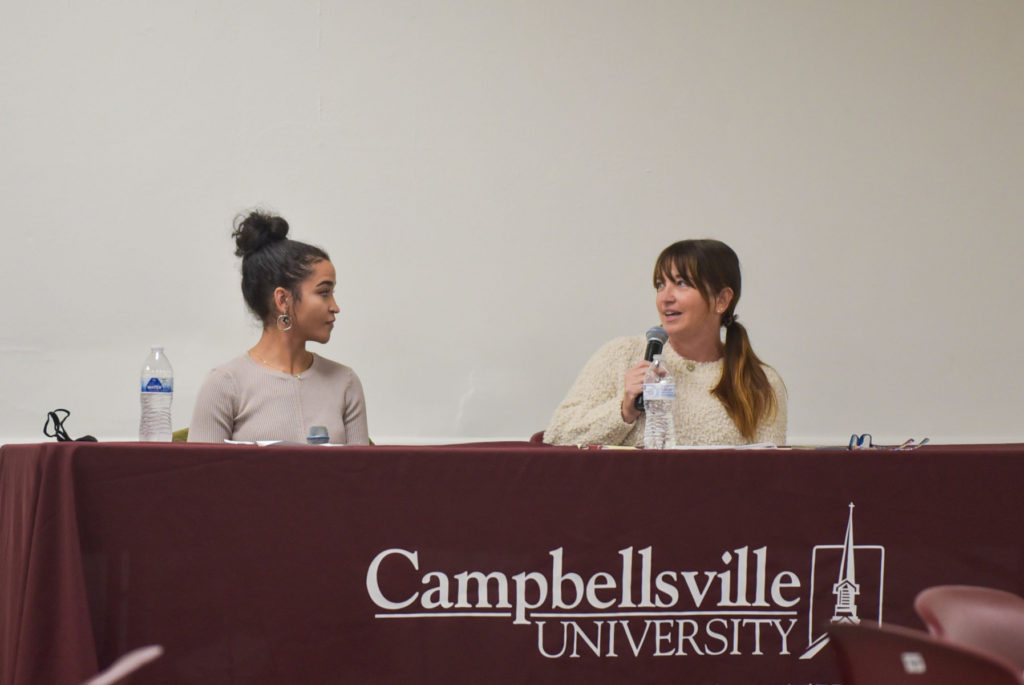
By Scarlett Birge, student news writer, Office of University Communications
CAMPBELLSVILLE, Ky. – “Racism isn’t always overt,” Kayla Brown, youth program coordinator for Partners for Youth Foundation Inc. of Lexington, Ky., said recently at a meeting at Campbellsville University.
“It can be very subtle and nuanced in this age.”
Brown and her mother, Dr. Carey Ruiz, associate professor of sociology and director of diversity and community at the university, discussed microaggressions for CU’s Food for Thought in the Badgett Academic Support Center Banquet Hall.
Brown defined microaggressions as derogatory comments, remarks or actions that are racially or ethically motivated. Microaggressions can also target other forms of identity or expression such as sex and gender.
“Microaggressions can be accidental, but sometimes they can be used very deliberately to establish dominance,” Ruiz said.
Being on the receiving end of such harmful remarks or actions leaves an impact. Ruiz said microaggressions are dynamic and accumulative, often wearing on the recipient and diminishing their confidence over time.
“They happen enough to where it’s not accidental anymore,” Ruiz said.
The implication of microaggressions serve as an attempt to put people in their place, upholding detrimental stereotypes. They assume someone’s position in life based on their appearance, Brown said.
“You need to think about larger power structures,” Ruiz said. “Microaggressions reinforce those power structures.”
Microaggressions translate into real outcomes, Brown said. What might be a rude comment in one situation can translate into an act of discrimination in another situation. Microaggressions are the starting point for thoughts and actions leading to prejudice and discrimination.
“It takes a lifetime to work through and get past these issues,” Ruiz said.
Microaggressions undermine and discredit the person or group to whom they are targeted. The often subtle or nuanced way microaggressions are committed emphasizes the difference between groups of people, singling out the target.
“The power lies in the subtlety and the invalidation,” Ruiz said.
Regardless of intent, the effect of a microaggression is felt. Brown said microaggressions are hurtful no matter the motivation behind them. She said people reveal their true thoughts and feelings through microaggressions. They reaffirm the belief that the recipient does not belong.
“The damage is done because then you know how they feel about you, people who look like you and people you care about,” Brown said.
Misspeaking and making mistakes in wording happens, but effort is what matters. Brown said the way to proceed with learning about and avoiding saying or doing a microaggression is by being humble and teachable.
“Discussions on what these things mean are so important,” Brown said. “There is power in having conversations.”
Campbellsville University is a widely acclaimed Kentucky-based Christian university with more than 12,000 students offering over 100 programs of study including Ph.D., master, bachelor, associate, pre-professional and certification programs. The website for complete information is www.campbellsville.edu.
